CANADA CHICKENING OUT ON HUAWEI’S SABRINA? CANADIAN AMBASSADOR GIVES TIPS ON HOW SHE CAN AVOID EXTRADITION TO AMERICA
There is one glaring issue since the arrest of China tech giant Huawei’s CFO by the Canadian authorities on Dec 1, 2018 in Vancouver, Canada, apparently at the request of the U.S. for allegedly breaking U.S. imposed sanctions on Iran. From the beginning, the arrest screams “politically motivated” because American CEOs had committed the same offence but never arrested.
Many U.S. banks, such as JPMorgan Chase, had violated U.S. sanctions on Iran too, but neither their CEO nor CFO was arrested. In 2011, JPMorgan agreed to pay US$88.3 million as part of a settlement with the Treasury Department over a series of transactions involving Cuba, Iran and Sudan. In 2018 alone, the same bank was slapped with US$5.3 million in settlements for violating U.S. sanctions – 87 times!
The conventional wisdom was that even if Huawei had deliberately manoeuvred behind the sanctions to do business with the Iranians, the most Washington could do was to impose sanctions on Huawei, not arrest its top executive. Nope, the arrest of the Chinese tech princess isn’t the glaring issue here. What is jaw-dropping is the pussyfooting demonstrated by the U.S.
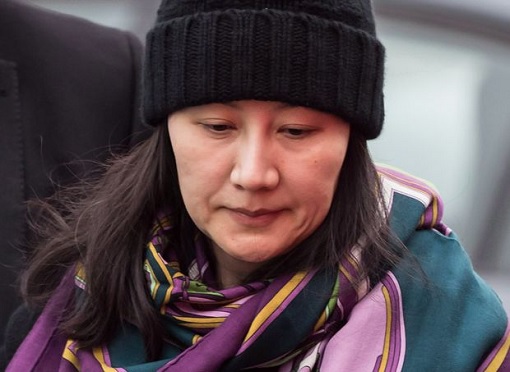
It has been more than 1 month, yet, it is only now that the U.S. has finally informed the Canadian government of its intention to proceed with a formal request to extradite Meng Wanzhou, also known as Sabrina Meng or Cathy Meng. Exactly why the U.S. did not immediately request for her extradition upon her arrest in December is fabulously mind-boggling.
Sabrina’s arrest on Dec 1, the same night that U.S. President Donald Trump and Chinese President Xi Jinping dined together in Buenos Aires and agreed to a 90-day trade truce, were seen as a deliberate act to humiliate the Chinese leader. Trump administration has claimed ignorance over the arrest of Sabrina, but very few believe the U.S. president was not kept in the loop.
Trump said he would intervene with the U.S. Justice Department in the case against the Huawei’s top executive if it would help secure a trade deal with Beijing. It was an indirect confession that Sabrina was kidnapped in exchange for a ransom. Already, most people in China perceived the arrest as nothing but a “political kidnapping” orchestrated by Canada and the U.S.
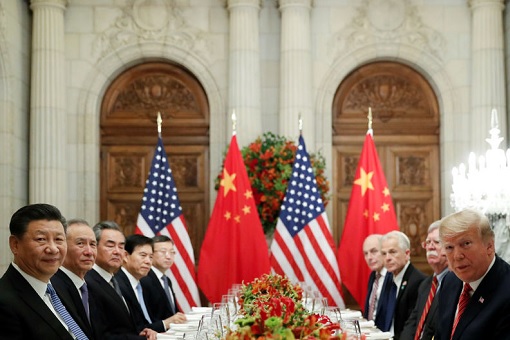
What the Canadian government, and the Trump administration for that matter, probably didn’t expect was the type of retaliation Beijing is willing to unleash. After sending Robert Lloyd Schellenberg to death for drug smuggling, the Chinese could deliver the same punishment to businessman Michael Spavor and former diplomat Michael Kovrig.
Curiously, both Spavor and Kovrig are being held in “secret detention” for the same reason – “suspected of participating in activities that harm China’s national security.” Both Canadians are at the mercy of Beijing. The Chinese authorities could slap the foreigners with charges of involvement in terrorist activities and sentence them to death by lethal injection.
The fact that Canada’s ambassador to the U.S. David MacNaughton has blamed the U.S. for the diplomatic fallout from the arrest of Sabrina Meng, complaining it is “paying the price” of Beijing’s anger, goes to show Canada has underestimated the consequences of the game. The question is – will the Canada-China diplomatic hostilities go away if Meng is extradited to the U.S.
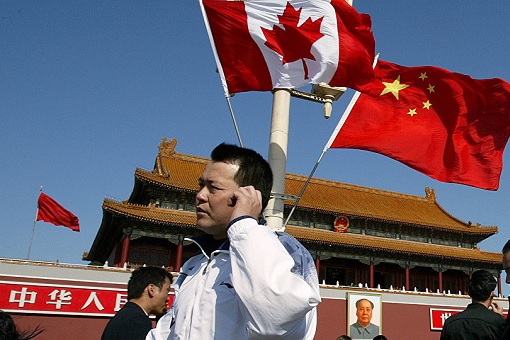
More importantly, is Trump administration serious about taking over the “package” from the Canadian authorities and risk a similar retaliation from the Chinese Communist Party – detention of Americans in China? To extradite Sabrina to the U.S. will only make the trade war with China more complicated, after Trump himself mixed trade dispute with national security.
Perhaps the answer could be found with the stunning tips offered by John McCallum, Canada’s ambassador to China. Mr McCallum apparently told Chinese news media that Sabrina Meng had “a strong case” against her extradition to the U.S. partly due to Trump’s politicization of the case. The ambassador’s comments were tantamount to offering legal advice to Beijing.
In December, after the arrest of the Huawei’s CFO, President Trump said – “If I think it’s good for what will be certainly the largest trade deal ever made – which is a very important thing – what’s good for national security – I would certainly intervene if I thought it was necessary.” This statement would come handy now that McCallum has hinted to China what to shoot.
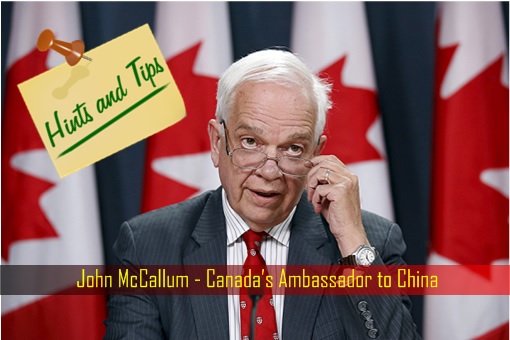
Ambassador McCallum offered the tips in Ontario on Tuesday – “One, political involvement by comments from Donald Trump in her case. Two, there’s an extraterritorial aspect of her case, and three, there’s the issue of Iran sanctions which are involved in her case, and Canada does not sign on to these Iran sanctions. So I think she has some strong arguments that she can make before a judge.”
The unexpected open discussion between McCallum with a group of Chinese journalists appeared to be a deliberate attempt of shooting Canada’s own foot. The “extraterritorial” aspect to the case, apparently a reference to the fact a Huawei subsidiary at the center of the dispute is based in Hong Kong – beyond Canada’s jurisdiction – is perhaps the strongest bullet Beijing can use to argue the case.
When asked about McCallum’s remarks, Prime Minister Justin Trudeau insisted on his government’s position of non-interference in judicial matters. But clearly, his ambassador’s “guidance” speaks volumes of possible “political interference” in the case – even discrediting the extradition process – so that the daughter of Huawei’s founder could be released soonest possible.
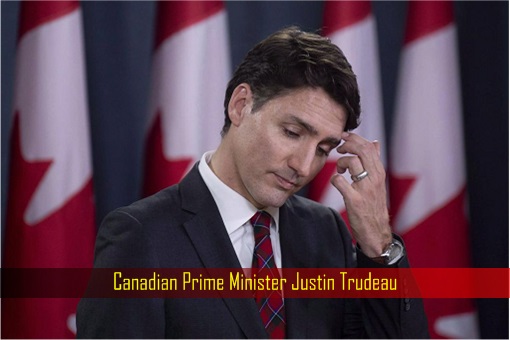
If indeed ambassador McCallum was sent by PM Trudeau on a secret mission to help China secure Sabrina Meng’s freedom, it means Canada admits the mistake and wants to restore the diplomatic relations between both nations. Heck, it could be the ultimate “face-saving” solution for not only Canada, but also the United States.
Basically, there are 3 options on the table. First, Sabrina would be extradited, an option which McCallum said “would not be a happy outcome.” Second, the U.S. would make a deal with China whereby the extradition request would be dropped. The third would be the release of the Huawei CFO by a Canadian court on the grounds the U.S. request was not warranted.
While the first option would be as good as a war declaration and a disastrous solution to all three nations – United States, Canada and China – the second option would mean Trump losing face. The third option will ensure all three parties get to walk away victorious, or at least prevent the current diplomatic hostilities and trade war from worsening.
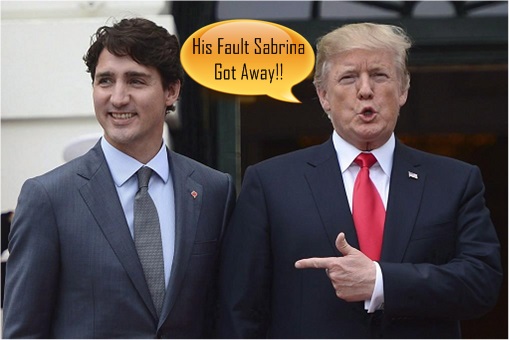
Canada can blame Trump, jurisdiction limitation and technicalities and whatnot for the failure to extradite the Huawei CFO. The U.S. can pretend to be furious at the Canadian judiciary system for not able to hand over Sabrina. China can declare victory, but at the same time praise the Canadian court’s independence for not kowtowing to either Canada or the U.S. governments.
It is worth to note that John McCallum is the current Canadian envoy, not a former ambassador or analyst; hence his remarks carry extreme weight. His hints are the most explicit sign that Sabrina Meng may not be sent to the U.S. after all. He also noted that Canada has not applied the same sanctions against Iran as the United States, suggesting that it’s perfectly alright to disagree with Washington.
– http://bit.ly/1vPEu3w
✍ Sumber Pautan : ☕ Malaysians Must Know the TRUTH
Kredit kepada pemilik laman asal dan sekira berminat untuk meneruskan bacaan sila klik link atau copy paste ke web server : http://bit.ly/2FYNMV6
(✿◠‿◠)✌ Mukah Pages : Pautan Viral Media Sensasi Tanpa Henti. Memuat-naik beraneka jenis artikel menarik setiap detik tanpa henti dari pelbagai sumber. Selamat membaca dan jangan lupa untuk 👍 Like & 💕 Share di media sosial anda!




















Post a Comment